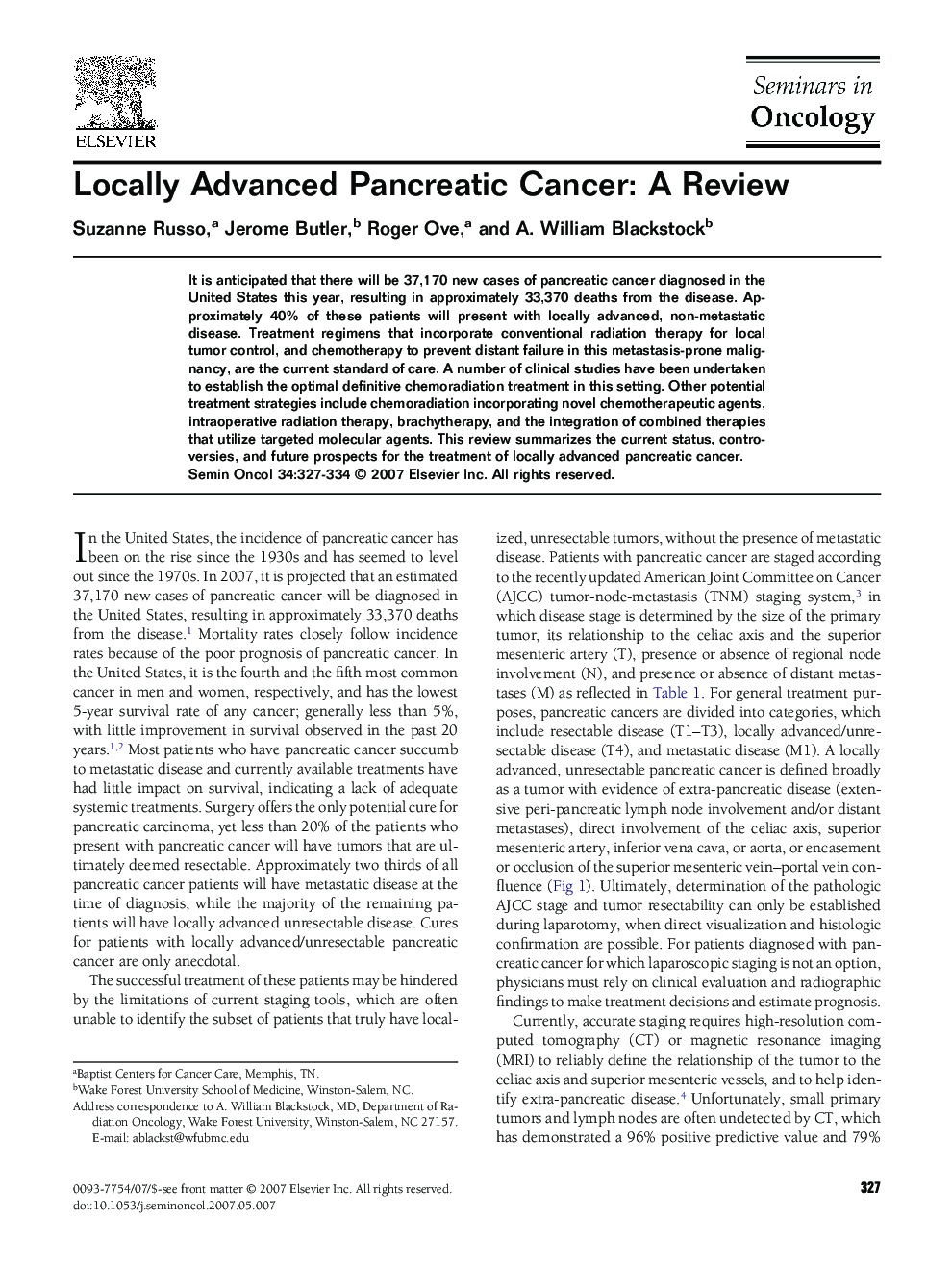| Article ID | Journal | Published Year | Pages | File Type |
|---|---|---|---|---|
| 2162839 | Seminars in Oncology | 2007 | 8 Pages |
Abstract
It is anticipated that there will be 37,170 new cases of pancreatic cancer diagnosed in the United States this year, resulting in approximately 33,370 deaths from the disease. Approximately 40% of these patients will present with locally advanced, non-metastatic disease. Treatment regimens that incorporate conventional radiation therapy for local tumor control, and chemotherapy to prevent distant failure in this metastasis-prone malignancy, are the current standard of care. A number of clinical studies have been undertaken to establish the optimal definitive chemoradiation treatment in this setting. Other potential treatment strategies include chemoradiation incorporating novel chemotherapeutic agents, intraoperative radiation therapy, brachytherapy, and the integration of combined therapies that utilize targeted molecular agents. This review summarizes the current status, controversies, and future prospects for the treatment of locally advanced pancreatic cancer.
Related Topics
Life Sciences
Biochemistry, Genetics and Molecular Biology
Cancer Research
Authors
Suzanne Russo, Jerome Butler, Roger Ove, A. William Blackstock,
